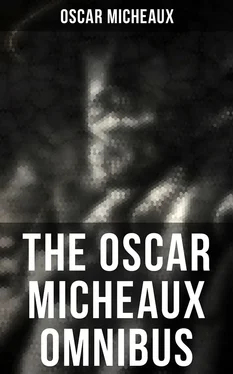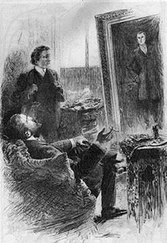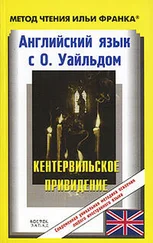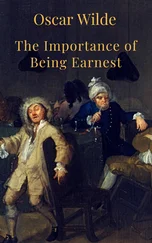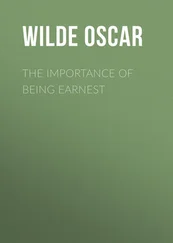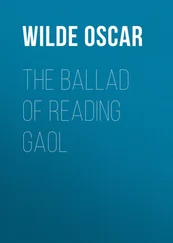"You don't have to ride with me. Naw! Naw! Naw!"
The elder became more frightened at this and hurriedly ducked into the hotel, where he stayed. I hitched a team of young mules to the wagon the next morning and sent Orlean to town after him.
The Reverend seemed to be carried away with our lives on the Little Crow, and we got along fine until he and I got to arguing the race question, which brought about friction. It was as I had feared but it seemed impossible to avoid it. He had the most ancient and backward ideas concerning race advancement I had ever heard. He was filled to overflowing with condemnation of the white race and eulogy of the negro. In his idea the negro had no fault, nor could he do any wrong or make any mistake. Everything had been against him and according to the Reverend's idea, was still. This he would declare very loudly. From the race question we drifted to the discussion of mixed schools.
The Reverend had educated his girls with the intention of making teachers of them and would speak of this fact with much pride, speaking slowly and distinctly like one who has had years of oratory. He would insist that the public schools of Chicago have not given them a chance. "I am opposed to mixed schools," he would exclaim. "They are like everything else the white people control. They are managed in a way to keep the colored people down."
Here Orlean dissented, this being about the only time she did openly disagree with him. She was firm in declaring there was no law or management preventing the colored girls' teaching in Chicago if they were competent.
"In the first place," she carefully continued, "the school we attended in Ohio does not admit to teach in the city."
In order to teach in the city schools it is either necessary to be a graduate of the normal, or have had a certain number of years' experience elsewhere. I do not remember all the whys, but she was emphatic and continued to insist that it was to some extent the fault of the girls, who were not all as attentive to books as they should be; spending too much time in society or with something else that kept them from their studies, which impaired their chances when they attempted to enter the city schools.
She held up instances where colored girls were teaching in Chicago schools and had been for years, which knocked the foundation from his argument.
There are very few colored people in a city or state which has mixed schools, who desire to have them separated. The mixed schools give the colored children a more equal opportunity and all the advantage of efficient management. Separate schools lack this. Even in the large cities, where separate schools are in force, the advantage is invariably with the white schools.
Another advantage of mixed schools is, it helps to eliminate so much prejudice. Many ignorant colored people, as well as many ignorant white people, fill their children's minds with undue prejudice against each race. If they are kept in separate schools this line becomes more distinct, with one colored child filling the mind of other colored children with bad ideas, and the white child doing likewise, which is never helpful to the community. By nature, in the past at least, the colored children were more ferocious and aggressive; too much so, which is because they have not been out of heathenism many years. The mixed school helps to eliminate this tendency.
With the Reverend it was a self-evident fact, that the only thing he cared about was that it would be easier for the colored girls to teach, if the schools were separate. I was becoming more and more convinced that he belonged to the class of the negro race that desires ease, privilege, freedom, position, and luxury without any great material effort on their part to acquire it, and still held to the time-worn cry of "no opportunity."
Following this disagreement came another. I had always approved of Booker T. Washington, his life and his work in the uplift of the negro. Before his name was mentioned I had decided just about how he would take it, and I was not mistaken. He was bitterly opposed to the educator.
CHAPTER XXXVII
THE PROGRESSIVES AND THE REACTIONARIES
Table of Contents
It is not commonly known by the white people at large that a great number of colored people are against Mr. Washington. Being an educator and philanthropist, it is hard to conceive any reason why they should be opposed to him, but the fact remains that they are
There are two distinct factions of the negro race, who might be classed as Progressives and Reactionaries, somewhat like the politicians. The Progressives, led by Booker T. Washington and with industrial education as the material idea, are good, active citizens; while the other class distinctly reactionary in every way, contend for more equal rights, privileges, and protection, which is all very logical, indeed, but they do not substantiate their demands with any concrete policies; depending largely on loud demands, and are too much given to the condemnation of the entire white race for the depredations of a few.
It is true, very true indeed, that the American negro does not receive all he is entitled to under the constitution. Volumes could be filled with the many injustices he has to suffer, and which are not right before God and man; yet, when it is considered that other races in other countries, are persecuted even more than the negro is in parts of the United States, there should be no reason why the American negro allow obvious prejudice to prevent his taking advantage of opportunities that surround him.
I have been called a "radical," perhaps I am, but for years I have felt constrained to deplore the negligence of the colored race in America, in not seizing the opportunity for monopolizing more of the many million acres of rich farm lands in the great northwest, where immigrants from the old world own many of acres of rich farm lands; while the millions of blacks, only a few hundred miles away, are as oblivious to it all as the heathen of Africa are to civilization.
In Iowa, for instance, where the number of farms total around two hundred and ten thousand, and include the richest land in the world, only thirty-seven are owned and operated by negroes, while South Dakota, Wisconsin, Minnesota, and North Dakota have many less. I would quote these facts to my father-in-law until I was darker in the face than I naturally am. He could offer no counter argument to them, but continued to vituperate the sins of the white people. He was a member in good standing of the reactionary faction of the negro race, the larger part of which are African M.E. ministers.
Since Booker T. Washington came into prominence they have held back and done what they could to impede and criticize his work, and cast little stones in his path of progress, while most of the younger members of the ministry are heart and soul in accord with him and are helping all they can. The older members are almost to a unit, with some exceptions, of course, against him and his industrial educational ideas.
A few years ago a professor in a colored university in Georgia wrote a book which had a tremendous sale. He claimed in his book that the public had become so over-enthused regarding Booker T. and industrial education, that the colored schools for literary training were almost forgotten, and, of course, were severely handicapped by a lack of funds. His was not criticism, but was intended to call attention of the public to the number of colored schools in dire need of funds, which on account of race prejudice in the south, must teach classics. This was true, although industrial education was the first means of lifting the ignorant masses into a state of good citizenship. Immediately following the publication of the volume referred to, thousands of anti-Booker T.'s proceeded to place the writer as representing their cause and formed all kinds of clubs in his honor, or gave their clubs his name. They pretended to feel and to have everyone else feel, that they had at last found a man who would lead them against Booker T. and industrial education.
Читать дальше
